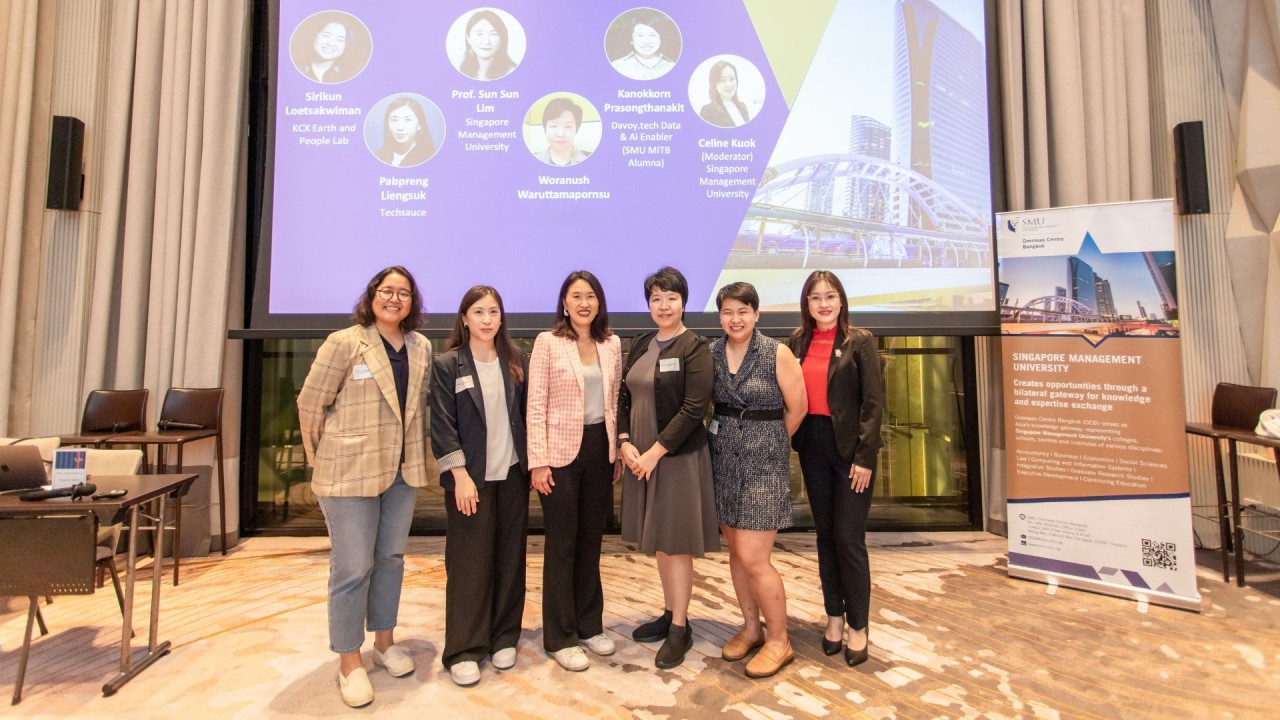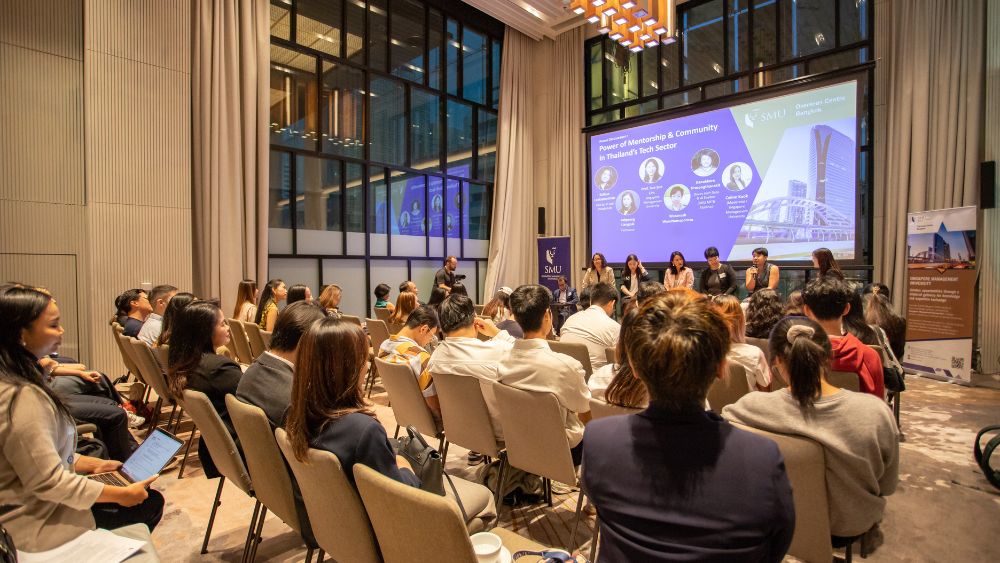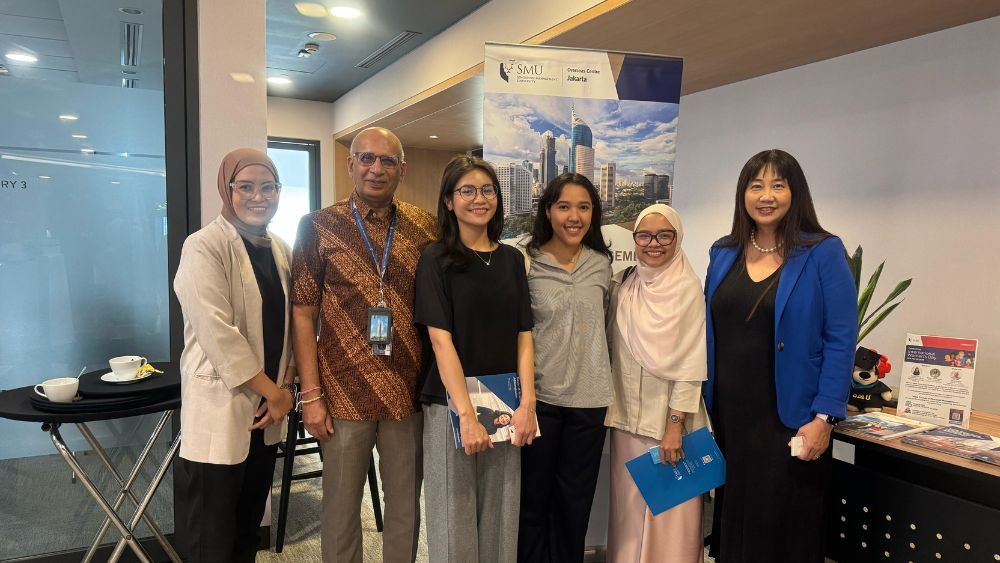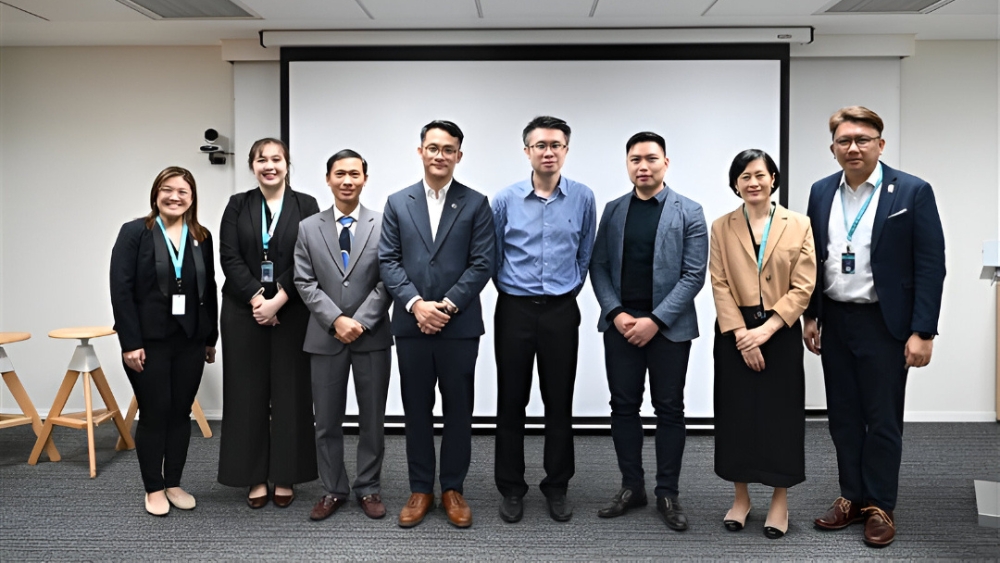
Fostering Diversity and Inclusion in Tech, Finance, and Research
SMU is committed to building inclusive ecosystems where women are empowered to lead, shape, and innovate. As part of its sustained commitment to inclusive leadership, SMU’s Overseas Centres in Indonesia, Thailand, and Vietnam convened regional thought leaders—including female leaders at SMU—for a series of high-impact engagements spotlighting women driving change in tech, finance, and research.
In 2022, a United Nations report revealed that women in the ASEAN region held just 41 per cent of managerial roles, 22 per cent of parliamentary seats, and only 11 per cent of CEO roles in major hospitals. These figures underscore how gender gaps in leadership—particularly in tech, finance, and research—remain deeply entrenched across the region.
In early 2025, SMU’s Overseas Centres in Bangkok, Jakarta, and Ho Chi Minh City organised a series of events marking International Women’s Day. More than commemorative occasions, these gatherings were platforms for action—demonstrating SMU’s broader, ongoing commitment to gender equity, diversity, and inclusion in the region.
Each event focused on amplifying the voices of women leading change in their respective industries. From technologists, financiers to researchers, the programmes spotlighted female leaders and their strategies for creating inclusive ecosystems—echoing SMU’s vision of shaping future-ready, globally minded changemakers.

Women Driving Digital Transformation
As Southeast Asia’s digital economy continues to grow at a rapid pace, ensuring broad-based participation—especially from women—has become a priority.
Yet, women remain underrepresented in the tech sector, especially in leadership. A BCG study showed that women account for only 34 to 40 per cent of tech roles across six Southeast Asian countries, with even fewer in decision-making positions.
At SMU’s Overseas Centre in Bangkok, this issue was addressed in a keynote by Professor Lim Sun Sun, Vice President (Partnerships and Engagement) and Lee Kong Chian Professor of Communication and Technology. Her talk on AI Ethics and Data Governance emphasised that ethical, human-centric frameworks must guide AI development—and that diverse leadership is essential to ensure technology reflects the needs of all.
“Female leaders bring invaluable perspectives to the tech industry, ensuring that products and services cater to a diverse audience. As tech solutions impact society at large, it is essential to have leadership teams that represent all demographics,” she said. “Women in tech play a key role in fostering an environment that supports growth in technology-driven fields.”
A panel discussion followed, featuring four accomplished women from Thailand’s tech ecosystem. Together, they explored how mentorship, visibility, and structural support are key to growing a pipeline of women leaders in tech.
“When young Thai women see strong female leaders in tech, it empowers them to pursue careers in this field,” added Professor Lim.
Redefining Financial Leadership
Southeast Asia’s fintech boom is transforming financial services—and with it, the expectations of financial leadership.
Indonesia stands out as a regional growth engine. According to BCG, the number of fintech firms in the country jumped from 51 in 2011 to 334 in 2022, fuelled by a young, tech-savvy population and growing demand for accessible financial services.
At a thought leadership forum hosted by SMU’s Overseas Centre in Jakarta, the spotlight turned to women shaping the future of finance. The session featured Ms Yvonne Chan, Chief Financial Officer of SMU, and Ms Melisa Hendrawati, Finance Director at Superbank, an emerging digital bank in Indonesia.
“Gone are the days when accountants were bean counters producing financial statements,” said Ms Chan.
“Modern organisations need financial leaders who can envision the future—leveraging historical data, embracing technology and sustainability, and guiding decision-making with clarity and purpose.”
Both speakers reflected on the changing expectations of financial leadership and the growing need for multi-dimensional capabilities.

Advancing Diversity in STEM Research
STEM education is often seen as a powerful equaliser—opening pathways to opportunity and innovation. In Vietnam, women make up an estimated 47 per cent of the R&D workforce, a promising figure by global standards. However, women remain underrepresented in research leadership roles.
To address this gap, SMU’s Overseas Centre in Ho Chi Minh City hosted Research in Singapore, an academic workshop aimed at fostering cross-border collaboration and awareness of graduate study opportunities in Singapore. The workshop, held in Hanoi, brought together early-career researchers from Vietnam and academics from Singapore, including Professor Heli Wang, Dean of the College of Graduate Research Studies.
“Being the only woman on the panel gave me a special connection with the young female researchers present,” said Professor Wang.
“Seeing SMU’s supportive, interdisciplinary approach inspire them to aim higher was deeply rewarding. It’s about creating spaces where diverse voices can flourish.”

Driving Inclusivity with Purpose
Beyond academic collaboration, SMU’s Overseas Centres serve as regional bridges—extending the University’s global reach while facilitating dialogue and partnerships on shared challenges.
The recent events in Bangkok, Jakarta, and Hanoi each addressed local priorities—whether digital governance, fintech inclusion, or STEM education—yet were united by a common purpose: building ecosystems where diverse leadership can thrive.
Through these conversations and cross-border networks, SMU is laying the groundwork for long-term, inclusive change—ensuring that leadership across Southeast Asia is as diverse and dynamic as the region itself.
Discover how SMU and its partners across the ASEAN region are shaping inclusive leadership for the future here.



